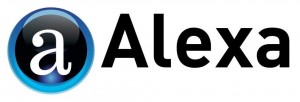2012 was a leap year, 2016 will be too, as will 2020 – you get the picture.
Every four years, the Gregorian calendar observers what is known as a leap year, a year with one day extra than the previous three years, or than the next three. This is because the solar year (how long it takes the earth to complete an entire orbit of the sun) is almost 6 hours longer than the standard 365 days calendar year.
Solar vs Gregorian Time
There is however a small issue with leap years. The original rule of adding a leap day every fourth year ever so slightly overcompensates for the time difference, as the solar year is 365.2422 days long. With leap years the average year has 365.25 days, which is 0.0078 days too many! Also, our planets spin is slightly irregular, meaning that some [solar] days are slightly longer [as in milliseconds!] than others, whilst others are slightly shorter.
 You might think that there really isn’t any point in worrying about 0.0078 days, as it would take over 128 years before all those tiny bits of days added up to make an entire day. However if we ignored the 0.0078 days, in 23,376 years we would have lost so much time, the seasons would have completely reversed, as there would be a huge 6 months of time distortion!
You might think that there really isn’t any point in worrying about 0.0078 days, as it would take over 128 years before all those tiny bits of days added up to make an entire day. However if we ignored the 0.0078 days, in 23,376 years we would have lost so much time, the seasons would have completely reversed, as there would be a huge 6 months of time distortion!
To solve the problem, clever scientists have worked out that if we miss out three leap days (omitting three leap years) every 400 years, then the average calendar year becomes 365.2425 days long. However this still leaves a 0.0003 day (or 25.92 second) difference each 400 year cycle – 0.0648 seconds every year. A relatively insignificant amount, but all the same, we want to be accurate, so a solution has been found!
Leap Seconds
Every so often we also get a leap second. Due to the irregularity of the movement of the earth, it is impossible to construct a precise schedule for these seconds.
 Leap seconds are added in as and when they are needed, so the Gregorian measure of time should never be more than one second out of sync with the measure of time linked to the earth’s orbit.
Leap seconds are added in as and when they are needed, so the Gregorian measure of time should never be more than one second out of sync with the measure of time linked to the earth’s orbit.
Sometimes leap seconds are positive, meaning they add to time, and they can also [in theory] be negative.
Leap seconds are usually added to the end of the day, at the end of a year, or half year period. The most recent leap second was on July the 30th 2012, where one second was added to time, so it didn’t become the 1st of June the second after 23:59:59, it instead became 23:59:60.
Problems With Leap Seconds
Leap seconds are brilliant from a scientific perspective, as they help to keep time and the environment in almost perfect constant sync, year after year. However from a technical perspective, they pose some huge problems!
Remember the huge fuss about the Millennium bug, the problems the turn of the century was [thought] to cause and the money that was thrown at it? Ultimately, nothing major happened. Leap seconds pose a similar sort of technological issue, but the threat much more real.
The most recent leap second, caused major technical issues for firms all around the world. Just before the leap second, there was a solar storm, which disrupted technology, especially websites, needless to say this didn’t help the leap second scenario in the slightest!
One of the most high profile victims of the June 2012 leap second was social network Reddit. Due to the nature of its activates Reddit relies heavily on synchronised operations, as do Foursquare, LinkedIn, Gawker, and StumbleUpon, who were all also affected. When the time on the servers of these services was thrown out of sync by one second with the time Apache Cassandra and Java were displaying, their technical systems went into meltdown!
After a few hours, most of the technical blackout was over, and the majority of services were back up and running.
Six months notice is given prior to a leap second, and for many firms they are not a problem. Measures do need to be put in place, however if they are, there are [usually] no issues.
Should We Abolish The Leap Second?
From a scientific perspective, the leap second is a fantastic idea; it keeps time perfectly synchronised. However from a technical perspective it is a bit of a costly annoyance.
In January 2012, there was a meeting by the ITU, who discussed whether or not to drop the leap second. We could just ignore these time adjustments altogether, or we could add a leap hour every few hundred years. Despite hopes, the ITU were unable to reach a consensus, so have put off making a decision until 2015 – at the earliest.





